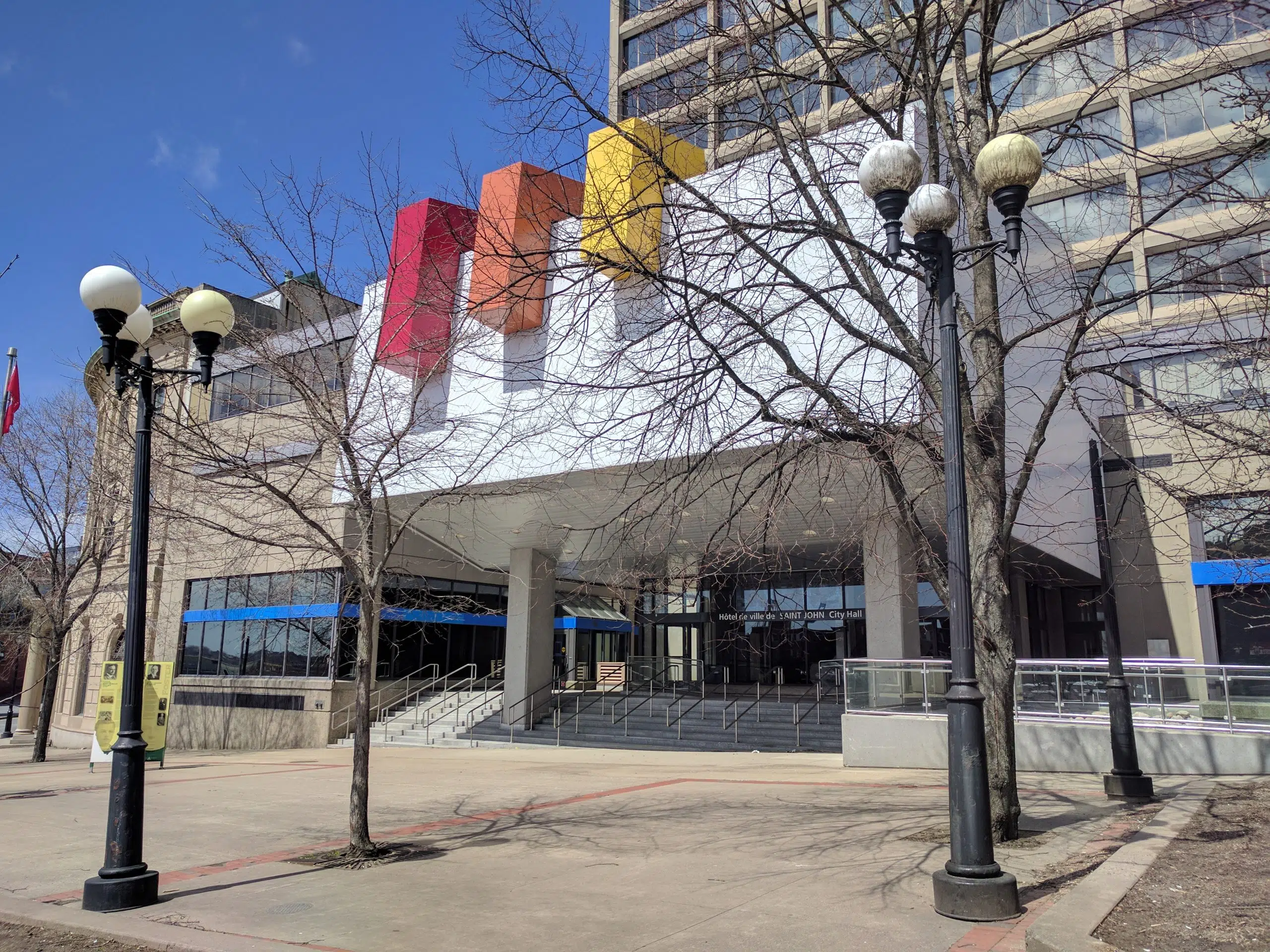
The exterior of Saint John City Hall is pictured in this file photo. (Staff photo)
Saint John is one step closer to phasing out its gas-powered vehicles for a carbon-neutral fleet.
On Monday, council adopted a new strategy that includes a roadmap to reach that goal by 2040.
“The proposed strategy is really well aligned with our climate change action plan,” said Samir Yammine, manager of asset and energy management for the city.
The strategy is part of the city’s overall corporate emissions reduction plan to become carbon neutral by 2040. According to Yammine, the city’s vehicle fleet accounts for nearly one-third of its overall greenhouse gas (GHG) emissions.
Wood Environment & Infrastructure Solutions, which completed the work, said the city is already well on its way to becoming carbon neutral.
Council set a short-term target of reducing GHG emissions by 30 per cent below 2015 levels by 2025. As of last year, Saint John was already 36 per cent below the 2015 baseline.
“No other city in New Brunswick is doing what we’re doing here,” Coun. Brent Harris said of the new strategy and overall plan.
“I don’t know if council realizes that the last council put in place these targets and we’re the only council that has reached any sort of meaningful target along the way.”
Naeem Farooqi, project manager with Wood, said transitioning the city’s current fleet to a low-carbon alternative will lead to cost savings of more than five per cent and cut CO2 emissions in half between 2022 and 2040.
Farooqui said there are opportunities for even more savings depending on fuel prices and the amount of external funding the city is able to secure.
Coun. David Hickey said this is an “incredibly exciting” opportunity for Saint John to lead the way in transitioning to carbon neutrality.
“In my rough math, by the time the public gives us the boot in the next election, half of our transit fleet is going to be electric, and something like 40 per cent of our regular fleet is going to be electric. That’s huge,” said Hickey.
Saint John Transit is already considering upgrading part of its fleet with electric buses as the city undergoes a transit redesign.
Finance committee members recently directed city staff to apply to a newly-announced federal program to help cover the costs. The Zero Emission Transit Fund, valued at $2.75 billion over five years, is designed to help transit authorities switch to zero-emission vehicles.
Ian Fogan, director of transit, said it would cost about $18.6 million over five years to purchase 24 electric buses and $3.98 million for the required charging stations, for a total of $22.58 million.
The federal program would cover 50 per cent of the costs, he said, bringing the city’s total to just under $11.3 million.
You can view the full report on the city’s website by clicking here.
By the end of this council term half of our City's fleet will be carbon neutral.🔋
Council has adopted our Greening the Fleet plan which will phase out our gas powered vehicles for a carbon neutral fleet by 2040! pic.twitter.com/meKqOkgAVG
— David Hickey (@DavidHickeySJ) April 21, 2022







